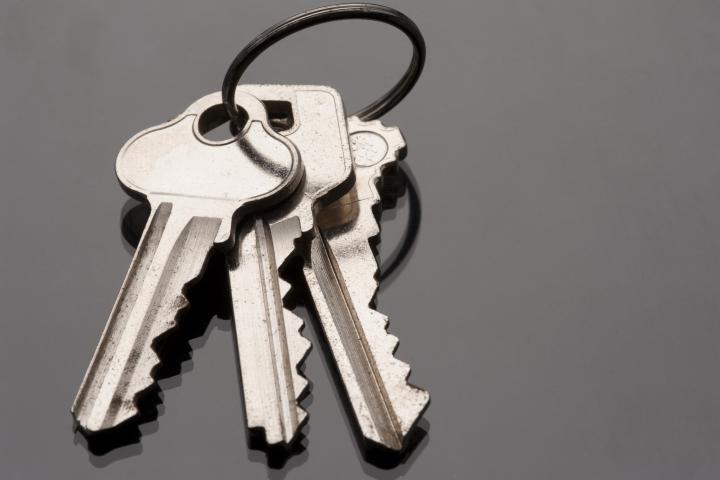
Why waste your time and gas on a trip to your local hardware store when you can duplicate your house keys with just your smartphone? That’s the dream offered by a company called Keys Duplicated (formerly known as Shloosl), a website that “has helped thousands of people safely and securely make copies of their keys,” according to its “About” page.
The process is simple: Upload photos of the front and back of your key, pay $6 for the first copy and $4 for every copy after that, then sit back and wait for your keys to arrive at your home (free shipping, cut and mailed the same day). Keys Duplicated also claims that their copies work better than the original and that security is their top priority.
A recent investigation by NBC New York’s I-Team casts a shadow on the latter assertion, which makes the former a tad disconcerting.
The investigation found that it was possible to take a photo of a key ring on a desk, edit the image to isolate a single house key, send that doctored photo to Keys Duplicated and get a functioning copy within a week. The I-Team then took to the public sphere and snapped photos of exposed keys (e.g., hanging out of someone’s pocket, sitting on a table) to illustrate how easy it would be to forge a stranger’s key.
Ali Rahimi, founder of Keys Duplicated, said the lessons from this investigation were worth noting. He added that in response to the investigation, the company would flag suspicious pictures of keys and follow up with those customers to request photos of the key in their hand.
Keys Duplicated’s website includes a page about security, which highlights two hurdles for potential abusers: a credit card is required to use the service, which makes it easy to identify a possible offender; and uploaded pictures must be high quality and display the front and back of the key. The company also says customers’ addresses are redacted from their system a few days after shipment, and that other bits of order information are “stored under bank-grade cryptography.”
All that said, there are other ways for miscreants to make copies of keys that aren’t their own, from old-school clay impressions to more modern tactics. For instance, KeyMe recently partnered with Shapeways to give people a way to take pictures of keys and use them to create 3D-printed copies, which is quite similar (albeit more expensive and fancy) than trying to do the same with Key Duplicated.
Innovative technology has a tendency to spark conversations that serve as wakeup calls, and this instance seems no different.


